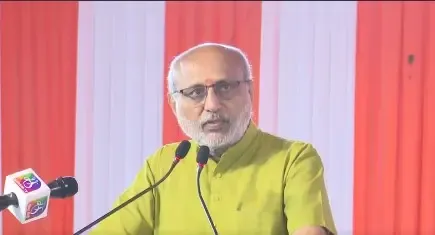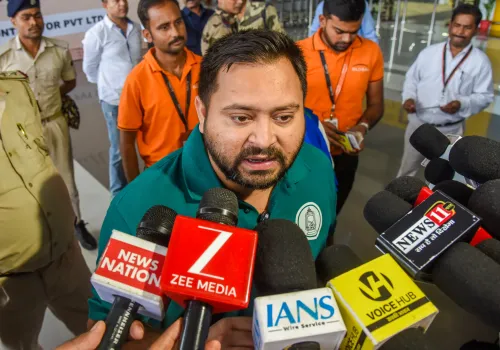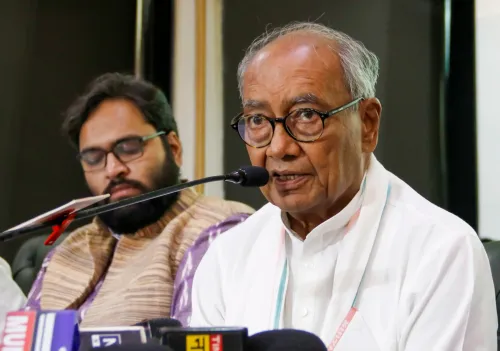Why Does Vice President CP Radhakrishnan Call Libraries Temples of Learning?

Synopsis
Key Takeaways
- Libraries as Knowledge Hubs: They provide access to credible information.
- Empowerment through Learning: Libraries foster critical thinking and community growth.
- Celebrating Legacy: The conference marks 80 years of organized library efforts in Kerala.
- P. N. Panicker's Vision: Transforming libraries into community-centric spaces.
- Collaborative Future: Enhancing digital access and sustainable knowledge ecosystems.
New Delhi, Nov 2 (NationPress) The Vice President, C. P. Radhakrishnan, articulated on Sunday that libraries represent temples of learning, highlighting their role as environments that foster critical thinking and empower both individuals and communities.
During his address at the International Conference on ‘Libraries Empowering Communities – Global Perspectives’ via a video message, Radhakrishnan emphasized that in the current digital landscape, libraries are pivotal knowledge hubs that facilitate access to credible information and combat misinformation.
He noted that while technology permits easy information retrieval, libraries promote depth, reflection, and significant dialogues within society.
This conference was organized by the P. N. Panicker Foundation at Kanakakkunnu Palace, Thiruvananthapuram, marking the 80th anniversary of the organized library movement in Kerala, inspired by the vision of P. N. Panicker, who is celebrated as the father of India’s Library and Literacy Movement.
In his message, the Vice President praised the P. N. Panicker Foundation for its ongoing efforts to promote a reading culture, digital literacy, and community empowerment through the distribution of knowledge.
He highlighted the Foundation's motto — “Vayichu Valaruka” (Read and Grow) — which continues to lead society towards enlightenment and inclusion.
The Vice President remarked that Shri Adi Shankaracharya traveled across Bharat to awaken spiritual consciousness and unify diverse ideologies.
He acknowledged that numerous sages and intellectuals have enriched our civilization with their wisdom, compassion, and foresight.
Reflecting on India’s ancient educational ethos, he observed that the nation’s longstanding tradition of learning — from the Epics to contemporary libraries — continues to motivate the quest for wisdom and social advancement.
The Vice President commended Kerala’s remarkable heritage in education and literacy, paying homage to P. N. Panicker, whose vision transformed libraries into vibrant community hubs that brought books and education closer to all.
In closing his message, the Vice President reiterated that libraries are dynamic centers of learning, inclusion, and innovation. He stressed the importance of bolstering the network of public and community libraries nationwide by empowering individuals through the power of knowledge.
The International Conference occurring on November 2 and 3 at Kanakakkunnu Palace, Thiruvananthapuram, unites experts, policymakers, library professionals, academicians, and digital innovators to discuss the evolving role of libraries in a knowledge-driven society.
This conference honors the longstanding legacy of Kerala’s library movement and seeks to formulate strategies to enhance community participation, digital access, and sustainable knowledge ecosystems.









